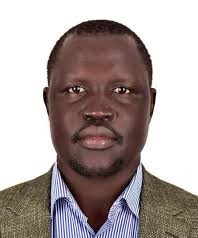The recent arrest of Dr. Riek Machar Teny Dhurgon should not be viewed as a political setback; rather, it represents a long-overdue reckoning. For decades, South Sudan has endured the ramifications of his ambition, betrayals, and the cycles of violence he has instigated. This moment should not be mistaken for persecution; it signifies accountability.
Dr. Riek Machar’s record is marked by tragedy. From the 1991 Nasir split, which led to the Bor Massacre, to his alliance with Khartoum that transformed the liberation struggle into a civil bloodbath, his actions have repeatedly fractured the country. During the height of the SPLA’s war against the North, he redirected our strength toward a fratricidal conflict that devastated communities, altered military priorities, and left enduring ethnic wounds.
He was forgiven and reintegrated as a result of peace efforts led by Kenya’s President Daniel arap Moi. He rose to prominence, first becoming the third most powerful figure and then the second in South Sudan. However, his ambitions remained unchanged. In 2010, he attempted to eliminate President Salva Kiir Mayardit by encouraging him to challenge President Omar al-Bashir in Sudan’s elections—a political trap meant to remove Kiir from Southern Sudan’s politics, leaving Machar as the sole contender against Dr. Lam Akol Ajawin.
Despite being granted responsibilities beyond his constitutional authority, Dr. Riek Machar failed to demonstrate loyalty in return. Instead, he cultivated dissent within the SPLM, which led to the outbreak of the 2013 conflict that set the nation ablaze. Millions were displaced internally and across international borders, families were torn apart, and schools, hospitals, and homes were reduced to rubble.
When peace was brokered in 2015 in Addis Ababa, Ethiopia, he responded with war—launching a failed coup disguised as a political meeting at the presidential palace in 2016. The 2018 agreement merely reset the cycle, empowering Dr. Riek Machar and his family without bringing peace to ordinary citizens. Instead, it prolonged the suffering of victims from 2018 to 2025 while shielding those responsible.
Today, many South Sudanese remain in UN protection camps. Food insecurity is widespread, and essential services are severely lacking. The ongoing instability can be directly attributed to the ambitions of one individual: Dr. Riek Machar.
Some in the international community now advocate for his release. But what are they truly defending—peace or impunity? Dr. Riek is not above the law. Sovereignty demands that justice be served without outside interference. The suffering of South Sudanese must not be used to excuse a legacy of bloodshed.
Dr. Riek Machar’s politics have fractured social cohesion. Communities that once intermarried now view each other with hostility. In-laws have become enemies. Hate has replaced the trust that once existed. This is the legacy we must all work to undo.
While some members of the SPLM-IO flee or cry foul, others, like Hon. Stephen Par Kuol, are stepping up to lead. Leadership is not about one individual. Replacing Dr. Riek is not an act of betrayal or a coup, as alleged; it is a necessity. For eight years, South Sudan has been mired in a costly political limbo, characterized by five vice presidents and a lack of clear direction. This cannot continue.
As we move forward, the state must fulfill its responsibility to protect all civilians, particularly those in regions linked to Dr. Riek. These communities are not his private domain; they are citizens of South Sudan. The recent bombings and military operations in areas like Fangak must cease immediately. South Sudan is not at war with its own people. We must seek justice without perpetrating new injustices.
President Salva Kiir Mayardit must resist external pressures and media campaigns. South Sudan deserves justice—this is not vengeance but a new beginning. Dr. Riek Machar must be held accountable under the law. Those who took up arms and terrorized civilians must be dealt with decisively, whether through military or legal means. It is time for our institutions to regain their strength.
South Sudan has long been held captive by its history. Now is the time to break free—not by recycling old power structures, but by holding accountable those who traded peace for power. Let justice prevail. Let the country begin to heal.
Yours truly, Mr. Teetotaler!
The author, Dr. Sunday de John, holds MBA and Bachelor of Medicine and Bachelor of Surgery (MBChB) from the University of Nairobi, Faculty of Business and Management Sciences and Faculty of Medicine respectively. He is the current Chairman of the South Sudan United Front-Progressive and can be reached via drsundayalong4@gmail.com
The views expressed in ‘opinion’ articles published by Radio Tamazuj are solely those of the writer. The veracity of any claims made is the responsibility of the author, not Radio Tamazuj.




